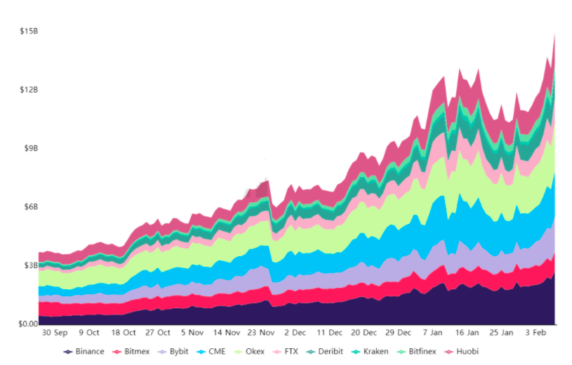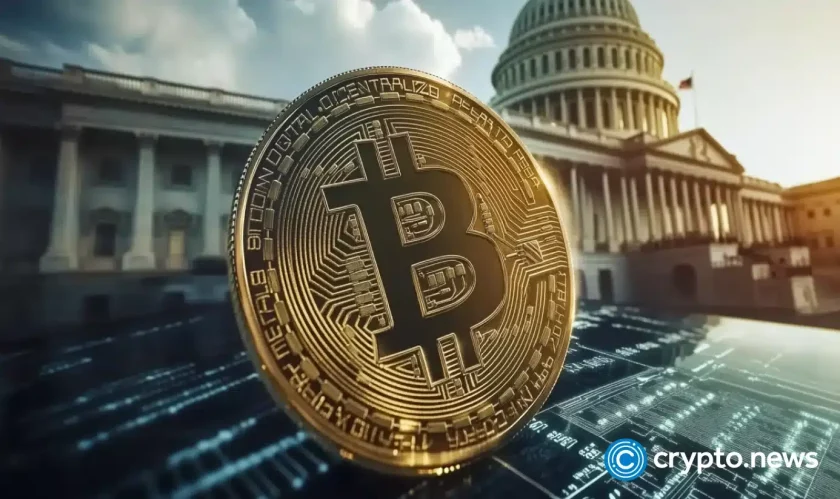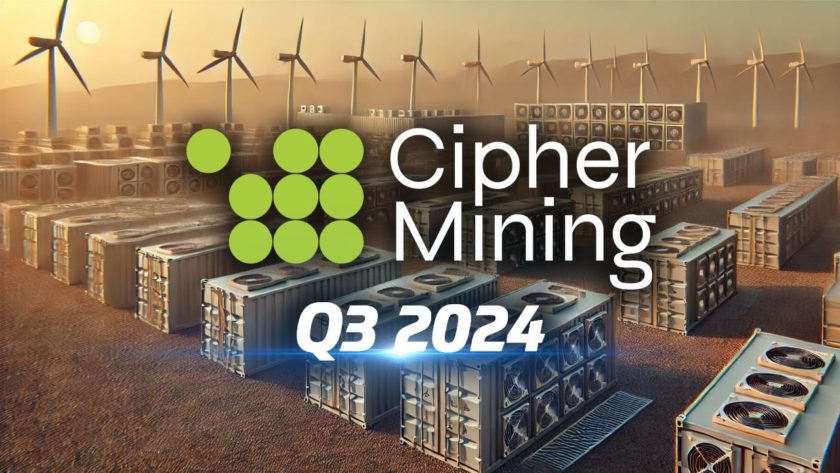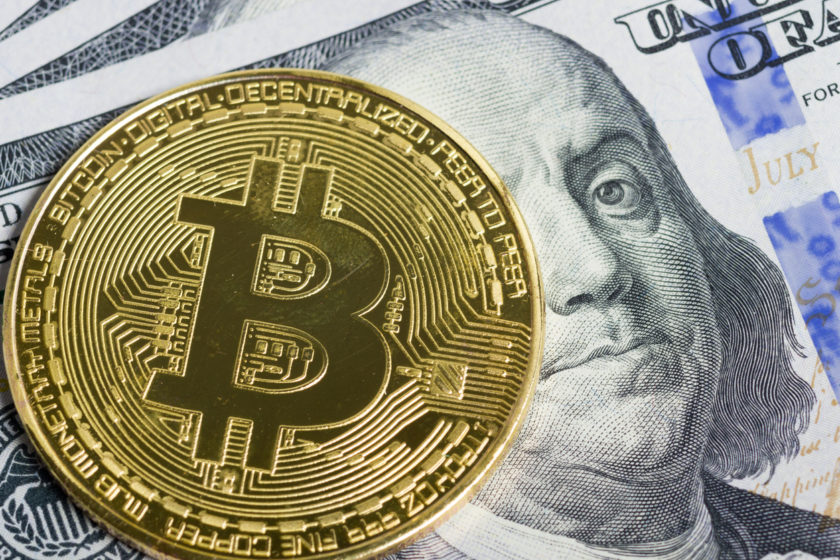Today Bitcoin (BTC) price rallied to a new all-time high at $44,900 shortly after Tesla announced a $1.5 billion investment. This event triggered $555 million worth of shorts to be liquidated in two hours and it happened as Bitcoin futures open interest reached $13.7 billion, which is just 3% below its historical high.
These price moves drastically increased the cost of carrying long positions, mainly for those using perpetual futures. This indicator raised a yellow flag on how leveraged those investors are and their potential price impact.
As shown adove, the aggregate BTC futures open interest just reached a $15 billion all-time high.
Whenever unexpected positive news hits the market, it is natural for players to enter extreme leverage positions. This happens both for the short sellers, whose margins diminish due to losses, and the long buyers who tend to increase their positions.
Shorts with insufficient margin get liquidated as their positions are forcefully terminated and their leveraged decreases. On the other hand, the longs are profiting, thus increasing the position doesn’t increase their leverage as much.
After the initial pump it’s expected that the funding rate increases and the fees paid by longs to keep their perpetual futures (inverse swaps) open rises.
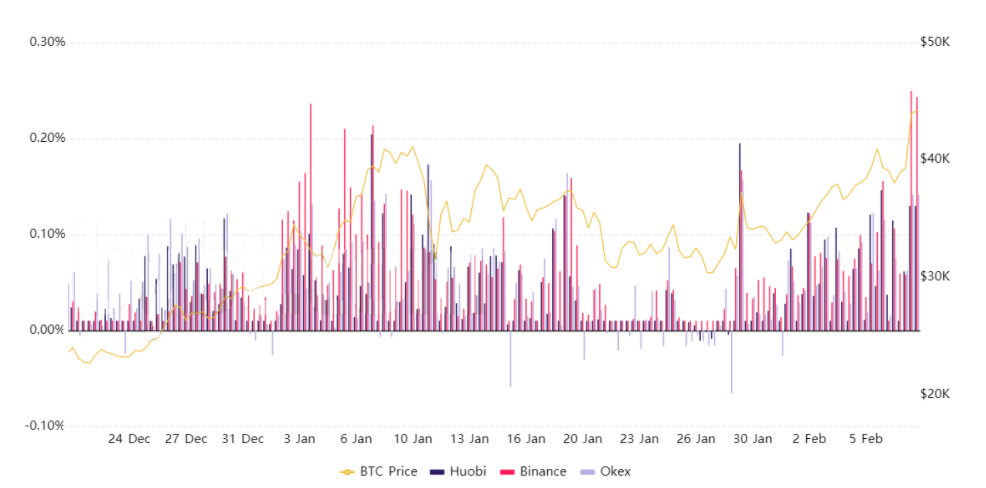
As depicted above, the 8 hour fee charged to compensate for the eventual leverage imbalance between longs and shorts has just touched 0.25%. This rate is equivalent to 5.4% per week, which is quite significant for its holders.
One should note that even if Bitcoin continues to appreciate, as seen on Jan. 29, the funding rate tends to adjust itself. Two main reasons fueled this: leveraged buyers depositing more funds and arbitrage desks shorting the perpetual futures while simultaneously buying spot BTC.
A funding rate varying from 0.05% to 0.10% per 8 hours is standard and expected during a bull market. This indicator would signify a 4.6% to 9.4% monthly fee and wouldn’t be problematic to leveraged longs.
To understand how whales and arbitrage desks may have positioned themselves during this period, taking a closer look at the top traders’ long-to-short ratio at major exchanges is useful.
OKEx traders bought ahead of the pump
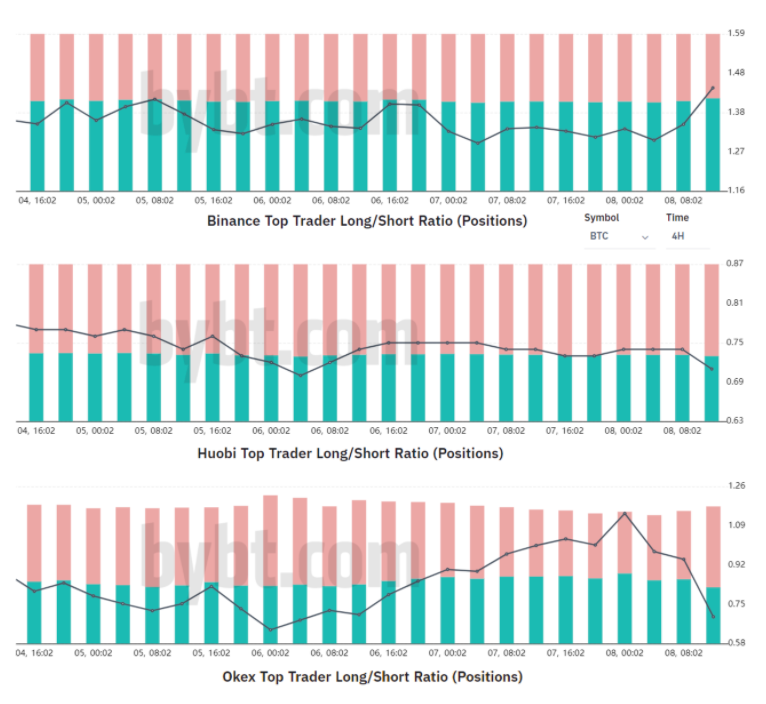
Binance top traders held a 33% net long position favoring longs ahead of the Feb. 8 rally, and this is slightly above their 26% 2-week average. As soon as the Tesla news hit the press, they increased longs and pushe the indicator to 46% which is its highest level in almost a month.
Huobi top traders, on the other hand, remained relatively unaffected by the news. Their net position stood at 0.74, meaning 26% favored shorts ahead of Feb. 8. Their current 28% net short position remains in line with the previous 2-week average.
Lastly, OKEx top traders increased their net longs from Feb. 6 to the early hours of Feb. 8, reaching a 14% net long position. Somehow correctly predicting the rally, those traders aggressively reduced net longs as BTC reached its all-time high.
The momentary hefty funding rate may be an inconvience for longs but currently there is no sign of excessive leverage from buyers. At least for those large market makers and arbitrage desks that compose most exchanges’ top traders.
This suggests that there is room for further price appreciation from Bitcoin.
The views and opinions expressed here are solely those of the author and do not necessarily reflect the views of Cointelegraph. Every investment and trading move involves risk. You should conduct your own research when making a decision.

